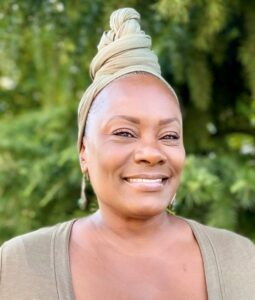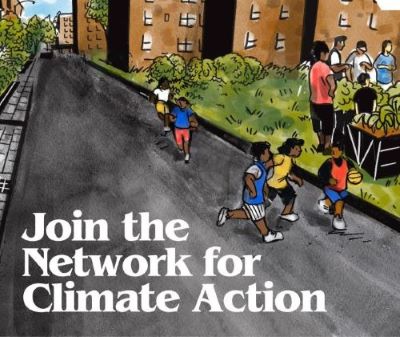Network for Climate Action Selected 15 NYCHA Residents to Engage in Climate Solutions
On May 25, NYCHA held its first resident workshop as part of the Network for Climate Action. Through this new initiative, a group of NYCHA residents are participating in a virtual workshop series focused on environmental and climate issues that can affect their developments and their families. In a five-part workshop series, from May to August 2021, network members will learn about NYCHA’s climate risks and sustainability goals, offer feedback, contribute ideas, and help come up with new solutions for their developments.
The Network for Climate Action is being jointly convened by NYCHA’s Sustainability and Recovery & Resilience teams. NYCHA is also partnering with the Pratt Center for Community Development and Kinetic Communities Consulting (KC3) to build the network of residents and facilitate the workshops. Out of 50 residents who applied,15 were selected by Pratt Center and KC3 to be part of the Network for Climate Action. Each of the residents represents a different NYCHA development.
Rebekah Morris, Senior Program Manager at Pratt Center (a non-profit urban planning organization), thinks it is important to listen to the voices of the community and make residents partners in NYCHA’s sustainability efforts.
“Both for us and NYCHA, this is a way to recognize how many good ideas residents have and how important it is to cultivate relationships where trust and transparency exist,” Ms. Morris said. “As a result, we have a network of residents having conversations about how to protect their homes and make their developments more livable places.”
Siobhan Watson, Program Manager in the Authority’s Recovery and Resilience Department, reiterated that the plan is to incorporate residents’ ideas into NYCHA’s sustainability plans and create two-way communication between NYCHA and residents.
“We convened the Network for Climate Action to make sure that we make space for residents’ voices to shape how we are dealing with climate conditions that we know are coming to NYC, such as heat waves, coastal storms, floods, etc.,” Ms. Watson noted. “We wanted to create an opportunity to include residents’ voices in our climate adaptation plans.”
Claudia Perez is the resident association president of Washington Houses and a Network for Climate Action member. She a well-known advocate in her development, involved in sustainability and climate change initiatives for many years.
“Hurricane Sandy affected hundreds of people in our development in different ways,” Ms. Perez said. “After that, we came to the conclusion that we are not ready for emergencies. And we started to think about how to get ready. We prepared an Emergency Evacuation Plan for our development. We distributed the booklets and informed our residents.”
Ms. Perez, with the help of other residents in her development, also conducted a demographic survey of her development. The results made her more concerned about the potential impacts of climate change.
“Thanks to the survey, I found out that 70 percent of our residents are people 65 years and older,” she said. “It means we are an aging development, and there is more to look out for. For instance, we have to be extra cautious during heat waves.”
Brigitte Vicenty, a Mott Haven Houses resident, is another Network for Climate Action participant. Ten years ago, Ms. Vicenty established a non-profit organization called “Inner City Green Team” (ICGT) to address low recycling rates at NYCHA, teach recycling education, and provide sustainable green job opportunities to NYCHA residents through the collection of recyclables.
“My green ministry is rooted in outreach and education to increase recycling rates at NYCHA,” Ms. Vicenty said. “I joined the Network for Climate Action because it’s very important to have residents become proactive and be presented with approachable ways to reduce their individual carbon footprint.”
Building on the experience from a pilot project at Brownsville Houses, Ms. Vicenty hopes to use ICGT’s local success to expand her ideas of recycling throughout NYCHA.
“It’s important for residents’ ideas to be validated and have them embedded into the solution as opposed to the solution that comes from those who never lived in public housing,” Ms. Vicenty remarked. “Creating trust and buy-in has been a successful tool in the program. Familiarity is key when presenting new initiatives; residents who know their fellow neighbors are willing to engage with them more freely. It has shown to increase much-needed civic engagement and has proven to increase residential recycling rates.”








